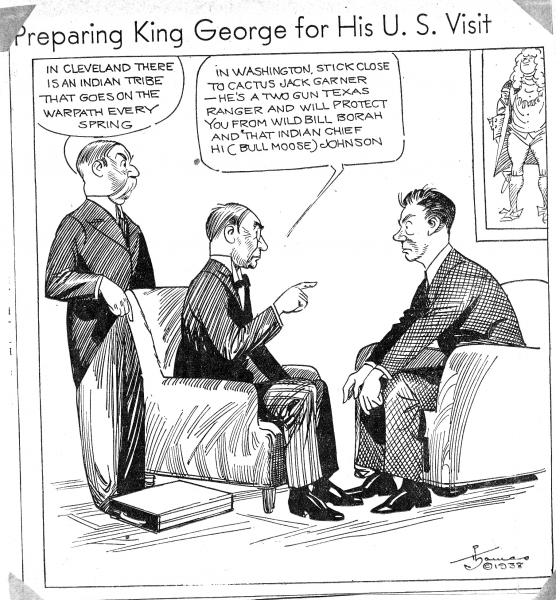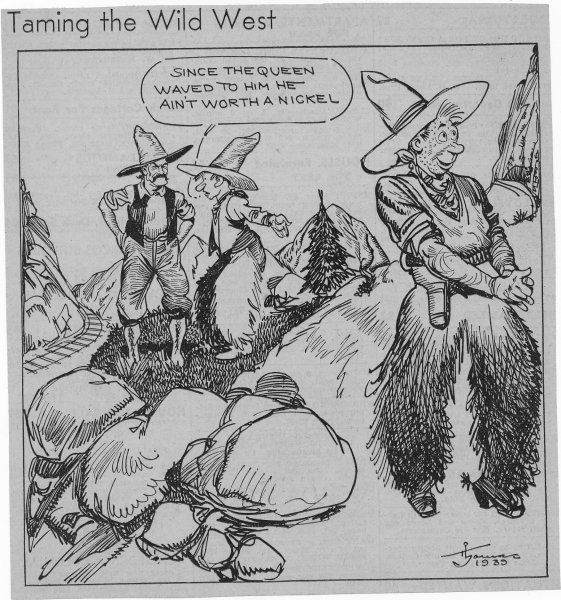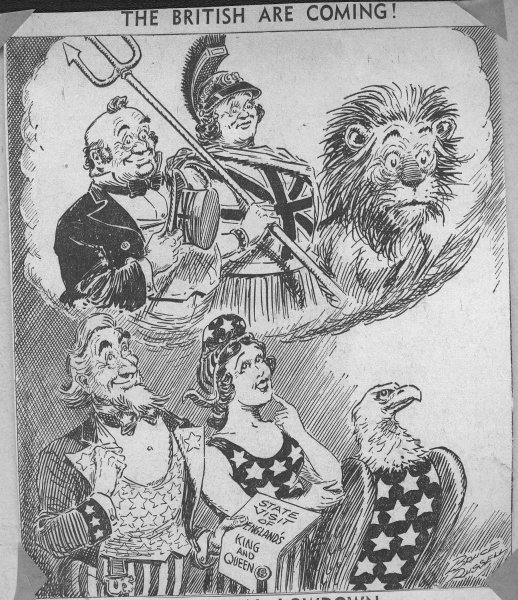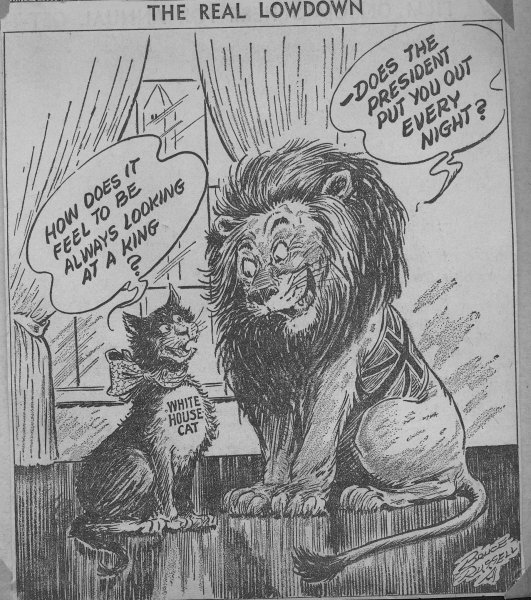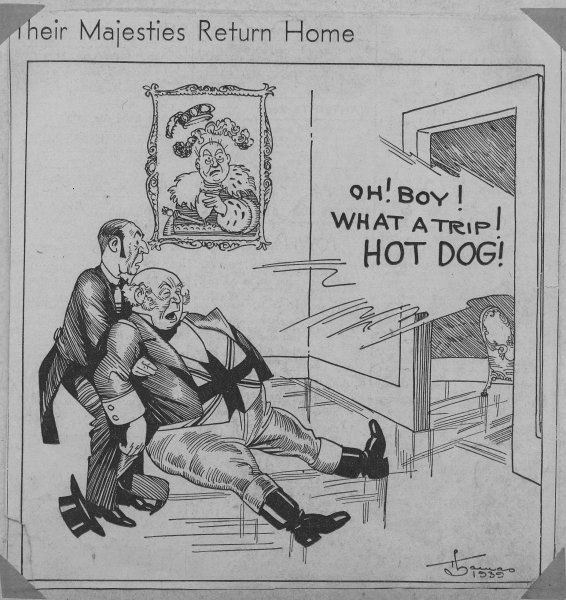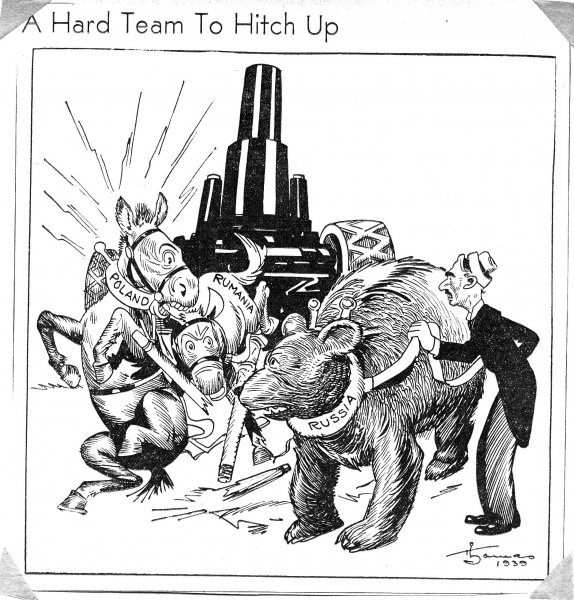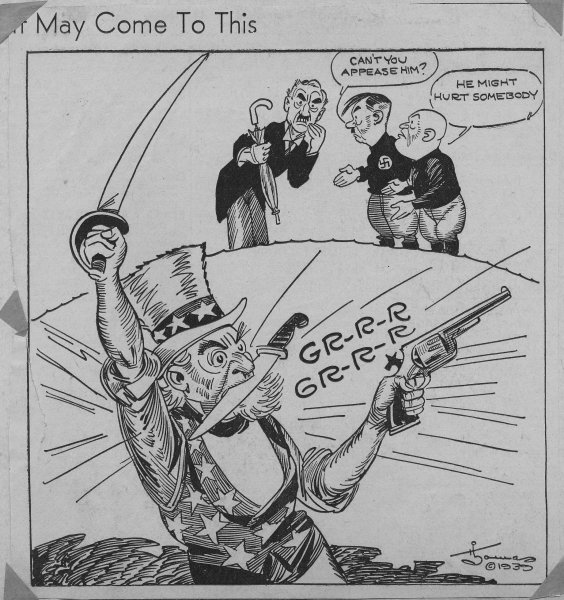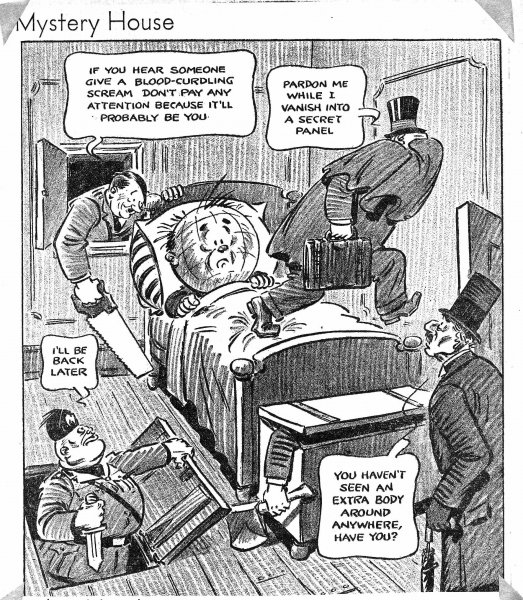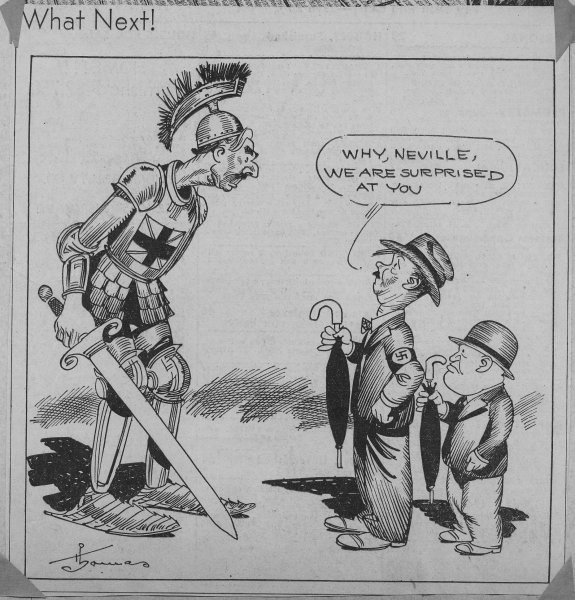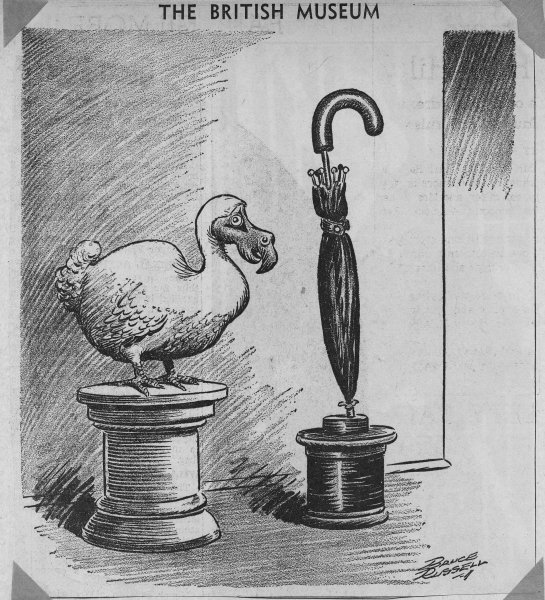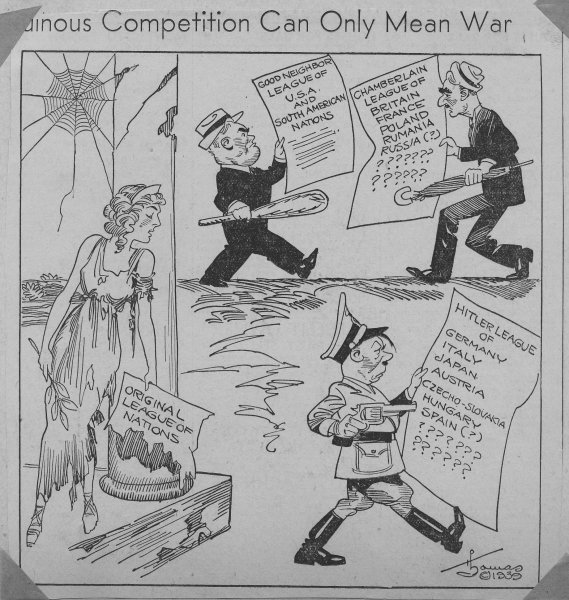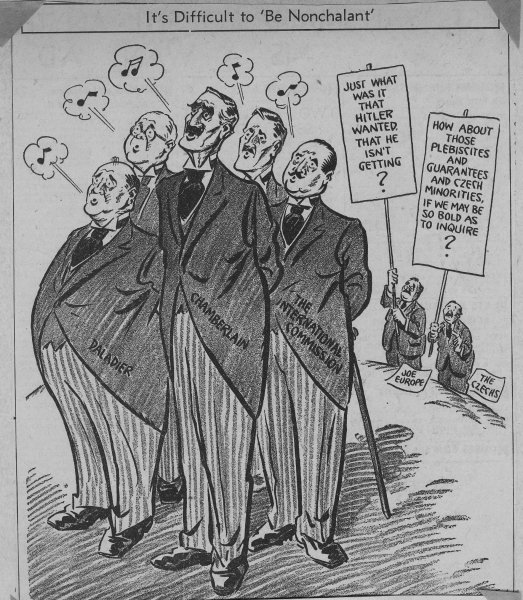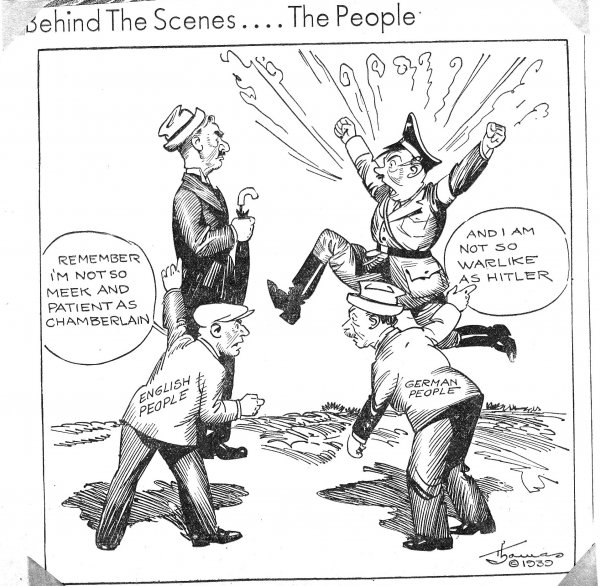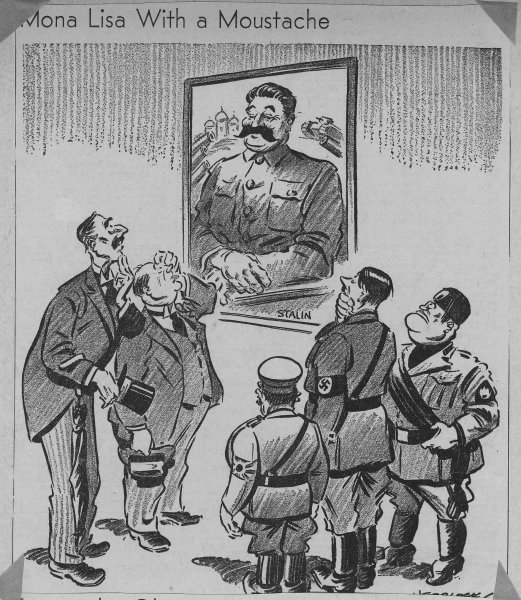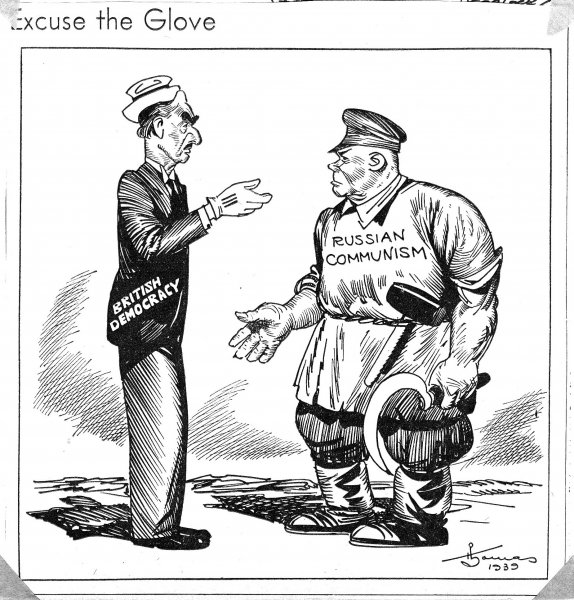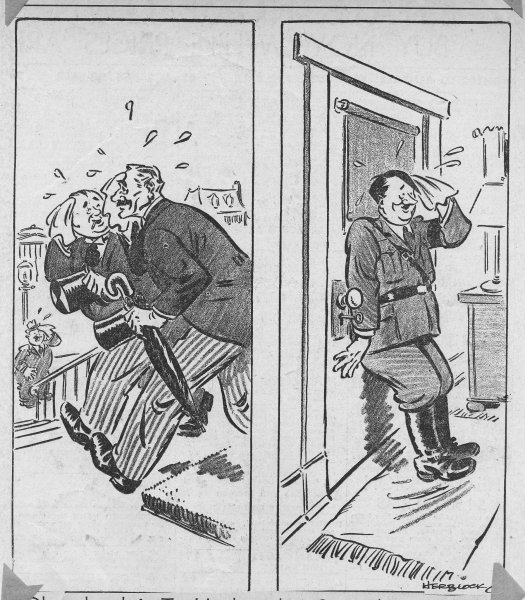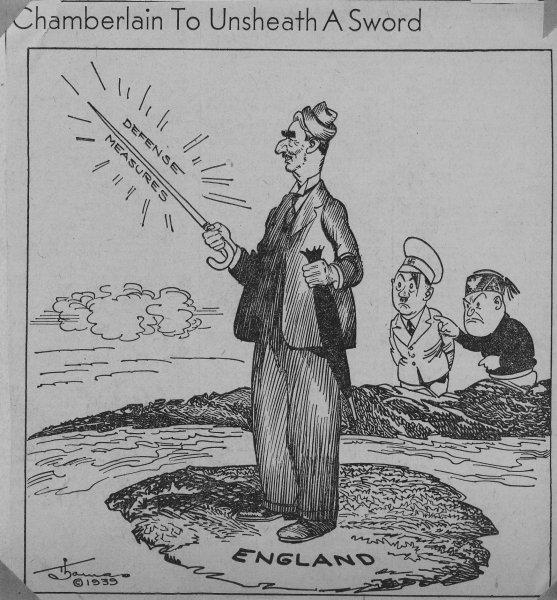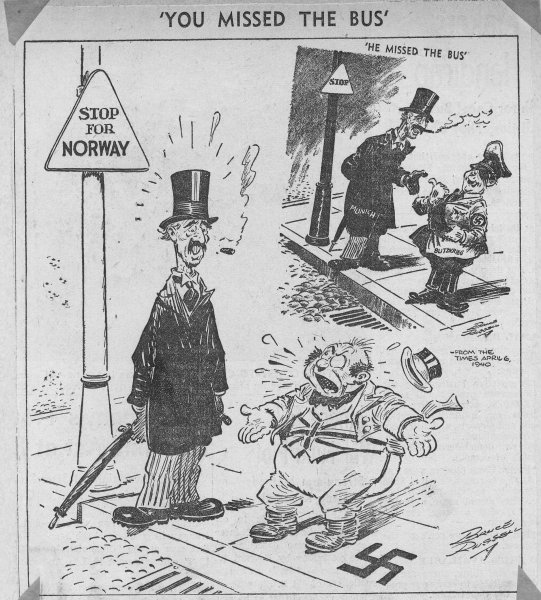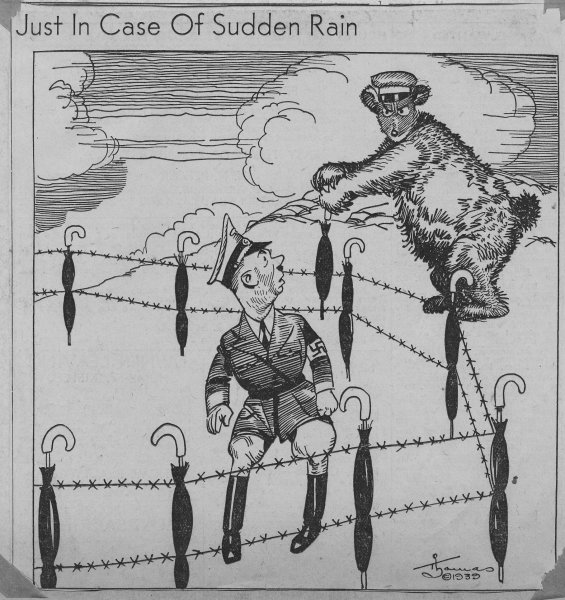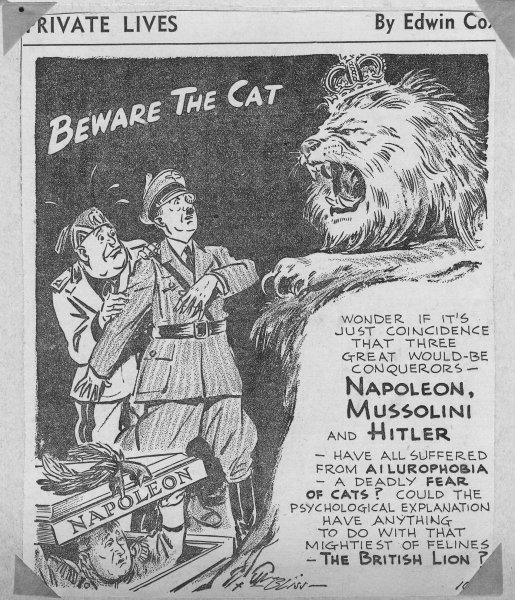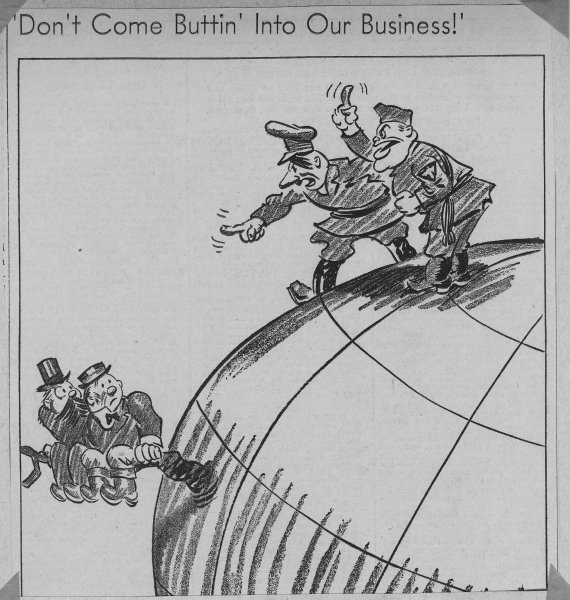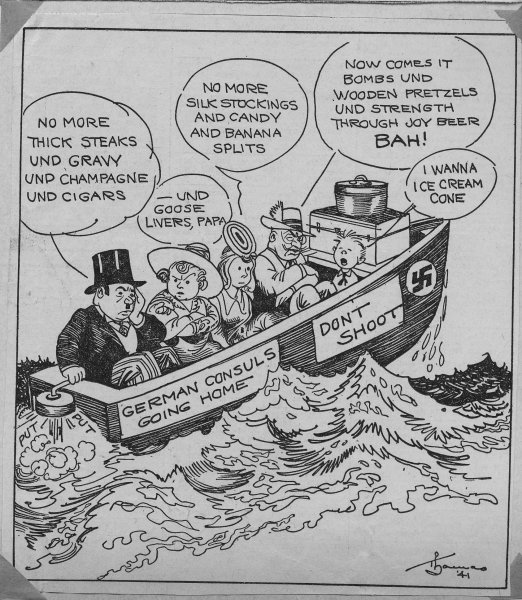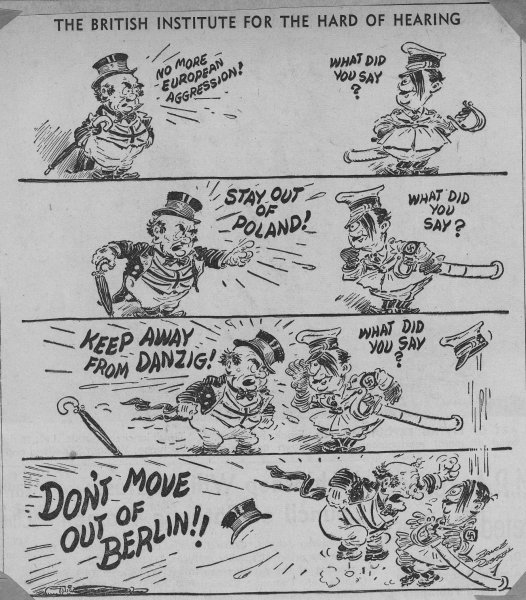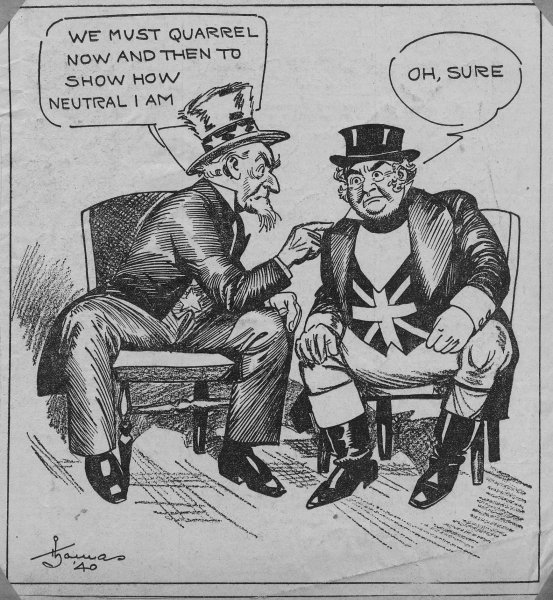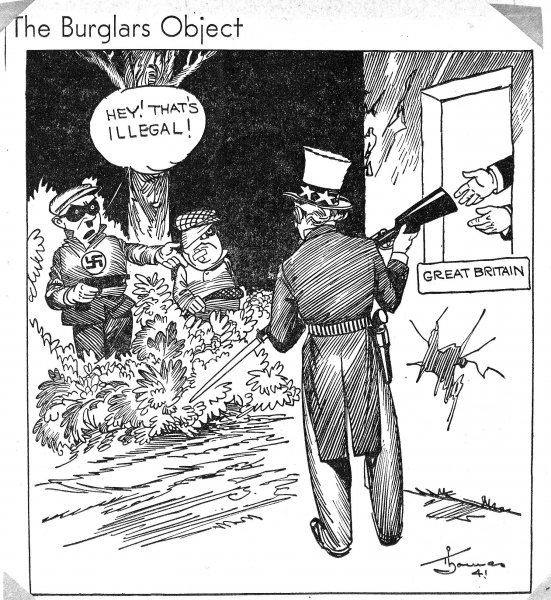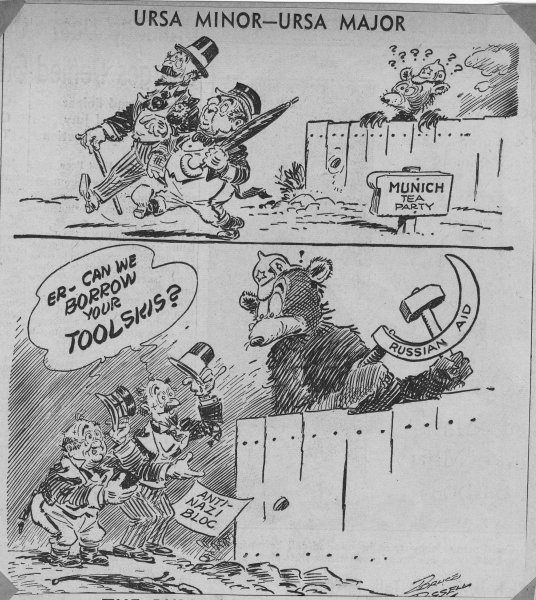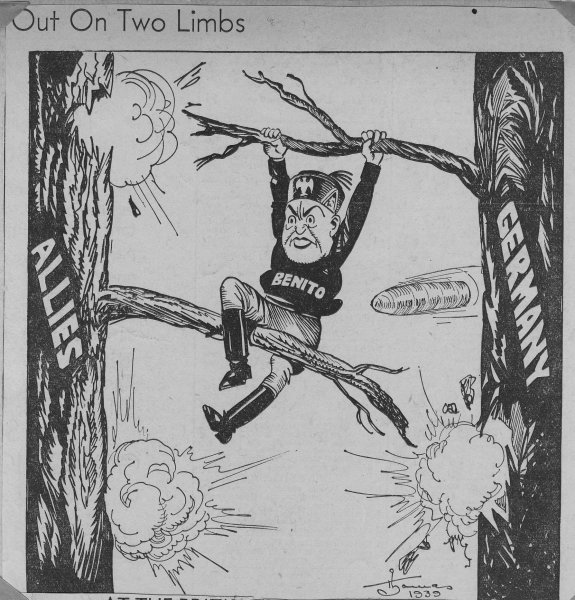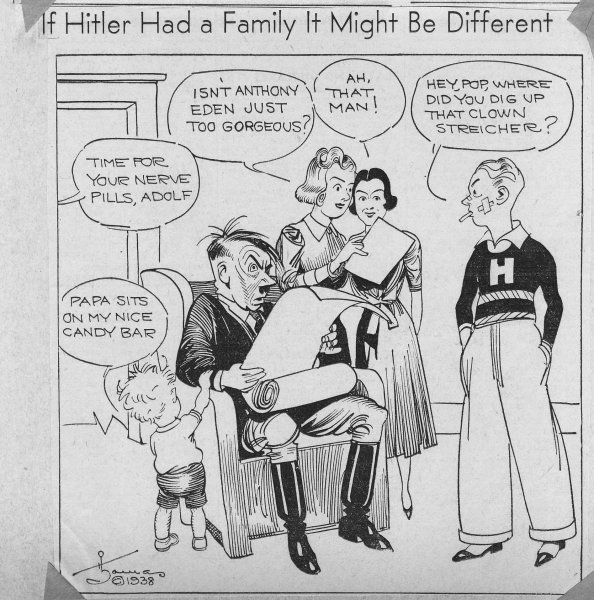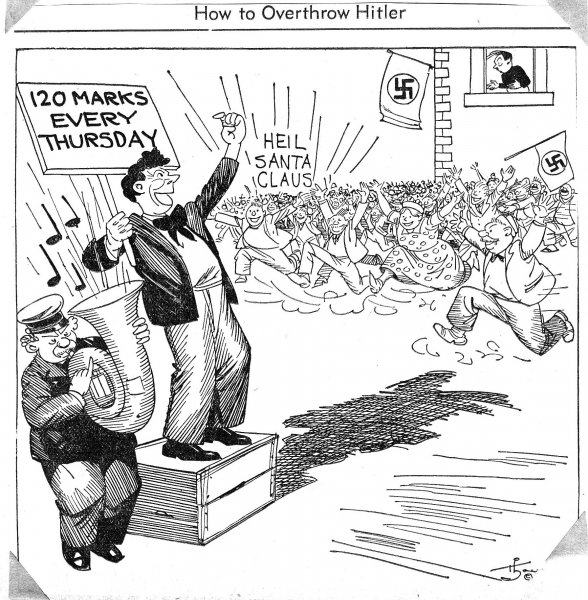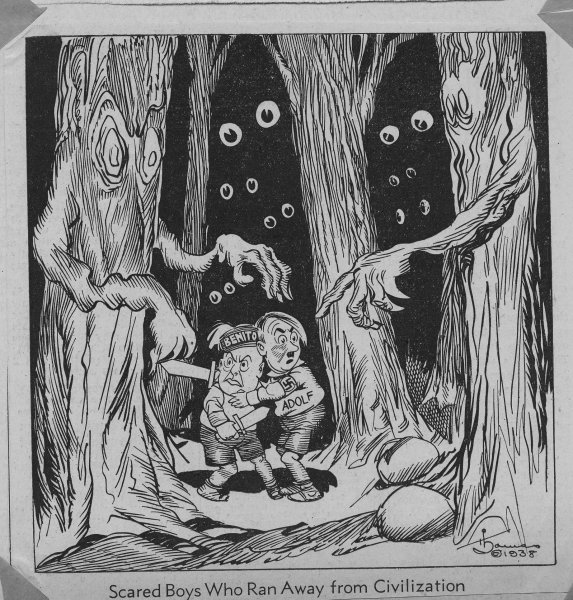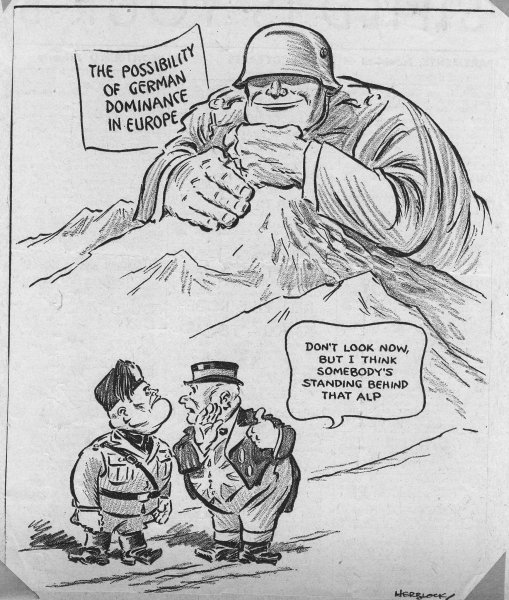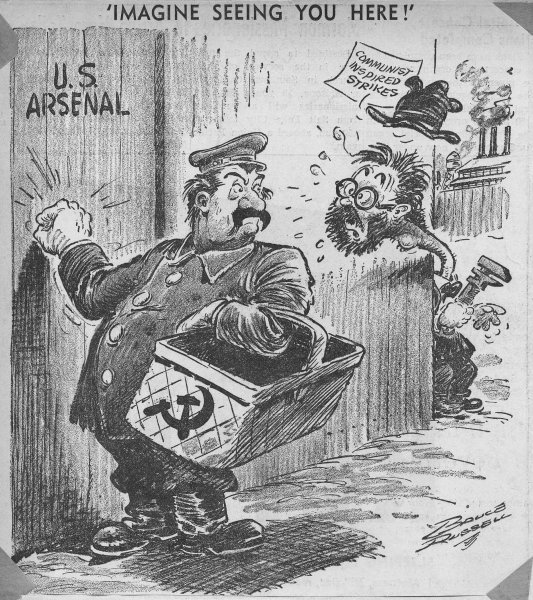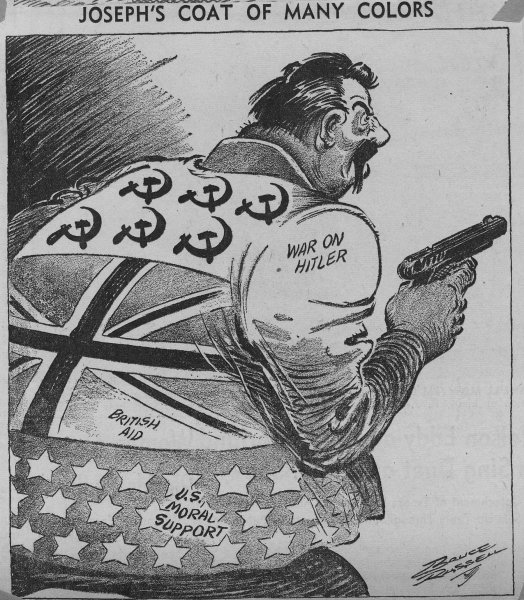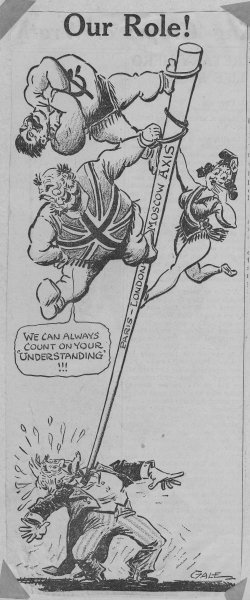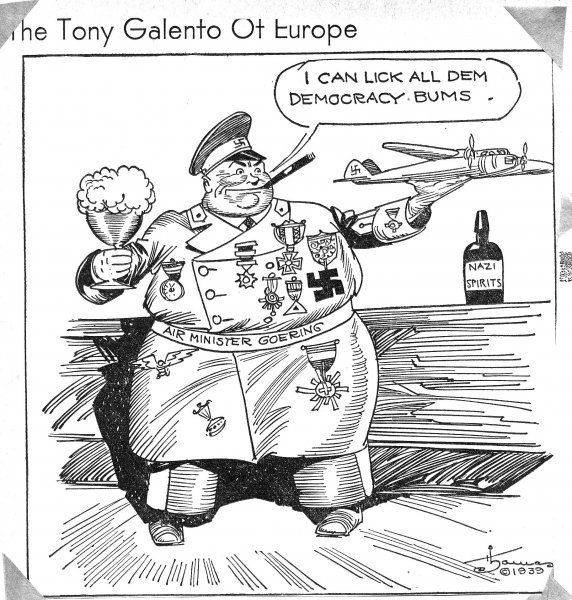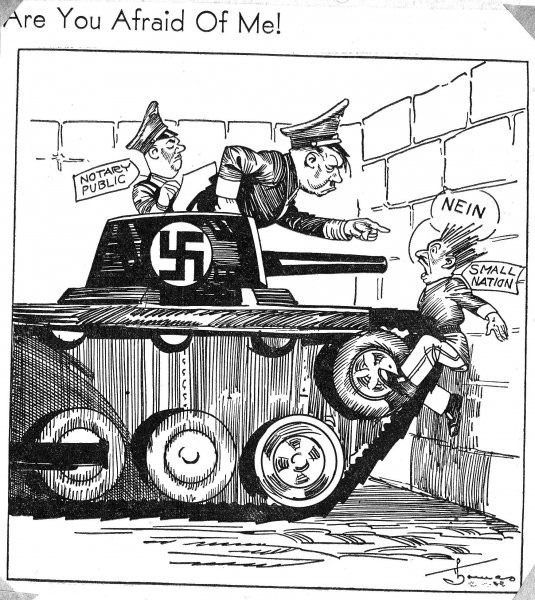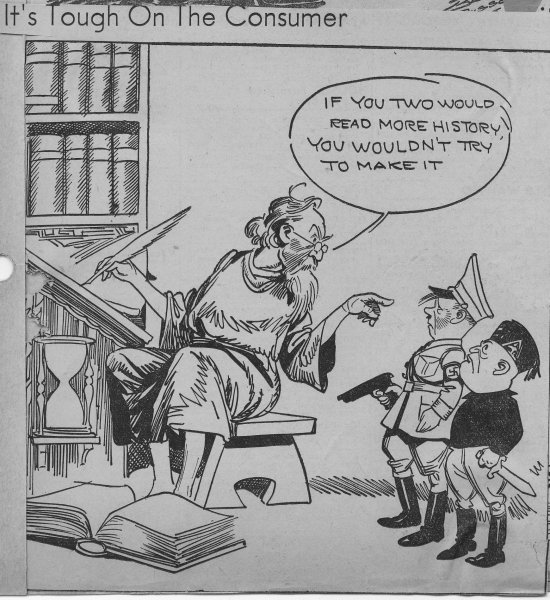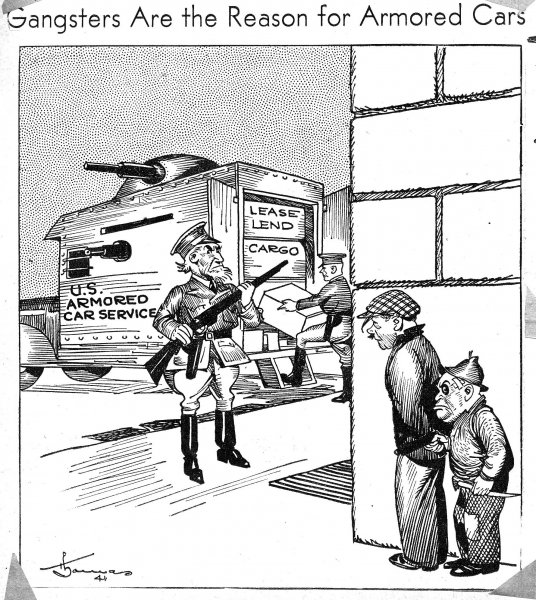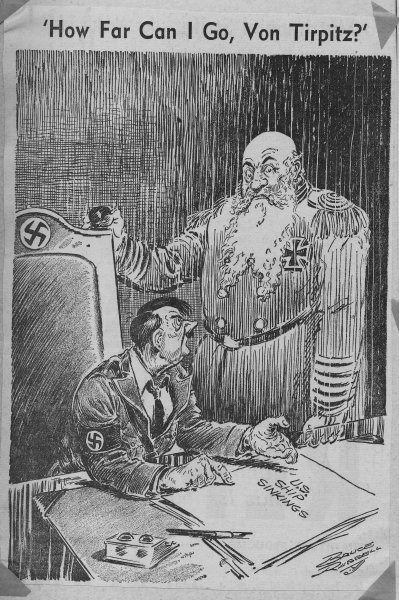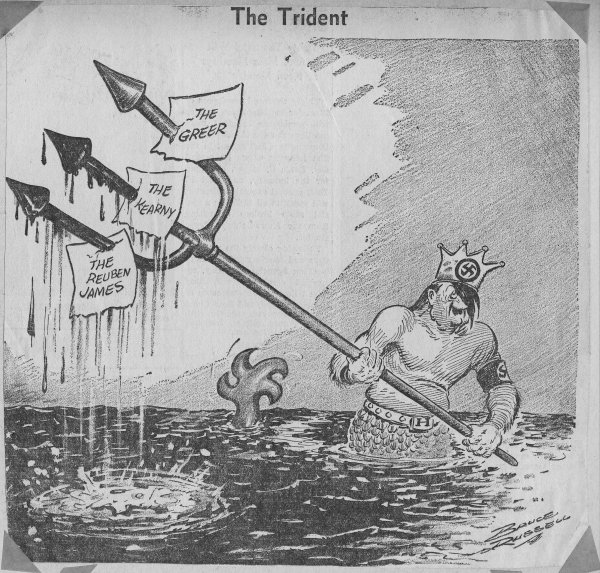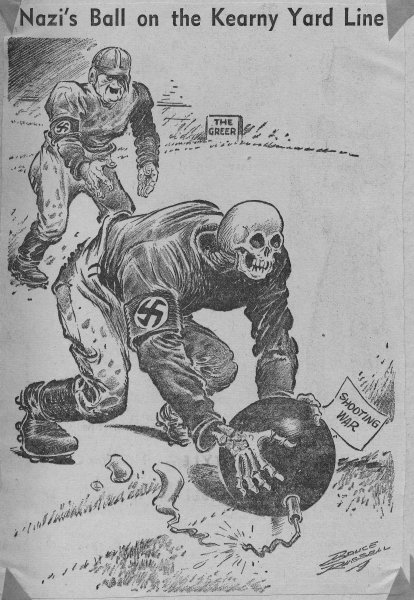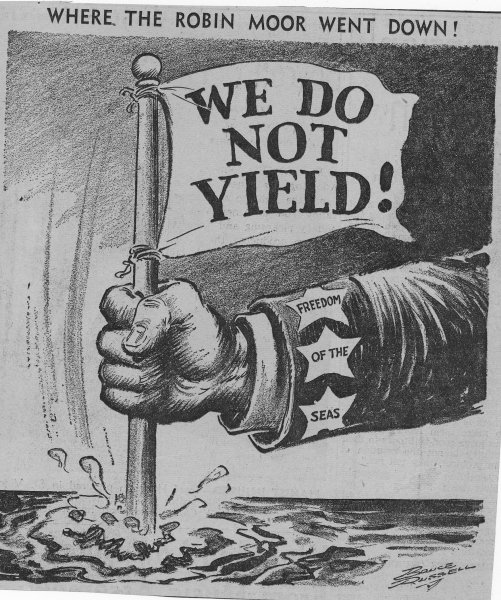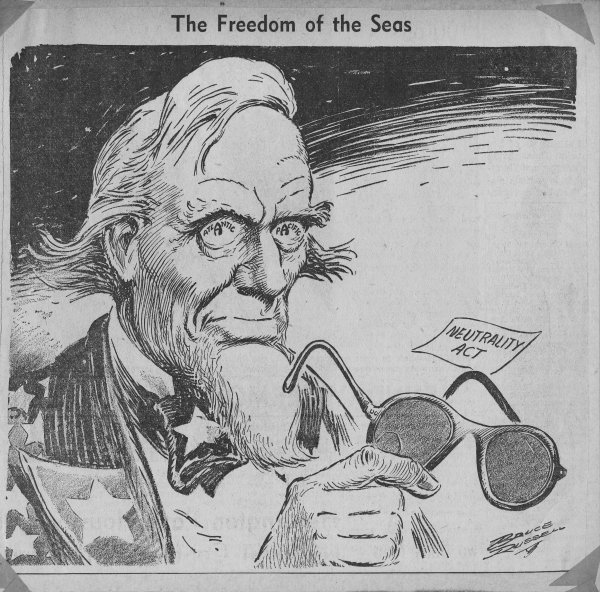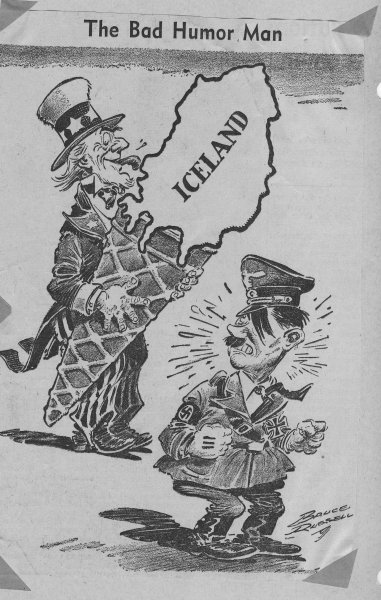Haversack
One Too Many
- Messages
- 1,193
- Location
- Clipperton Island
As I have mentioned once or twice previously, I inherited a collection of political cartoons that my grandfather cut out of Southern California newspapers chronicling events from about 1938 to 1946. Being a British subject, (professionally necessary as he was a valet and butler), much of them deal with goings-on in Britain, Europe and in particular, the Second World War.
Growing up with this collection gave me a view of the war and the events surrounding it that was both immediate and intimate. This was history not from a book or even from people who lived through it recalling it 25 years later. Much like Lizzie’s day-by-day postings from the Brooklyn Eagle and the Daily News, these cartoons comment on events with the eyes of those there and then. The creators of these cartoons and their publishers and readers did not have the luxury of knowing the future.
Much of this collection is in chronological order with some topics grouped together. However this is not hard and fast. For example, there are a series of cartoons concerning FDR’s decision to run for a third term and his choice for a running mate pasted in after cartoons commenting on the Battle of Stalingrad and the Fall of Singapore. My intention is to post three or four of these cartoons at a time either here in The Golden Era or in the WWII forum as seems appropriate. I make no guarantees that I’ll have a schedule nor be as diligent as Lizzie has been with her Day-By-Day thread. It is also my intention to not omit cartoons which use caricatures that would likely give offense to those of the here and now. If I were to do so, I would have to omit everything concerning the CIO and the war in the Far/Middle/Near East, the Pacific, Africa and India.
I hope that people will find this collection interesting and informative about not just the era but about how people of the time portrayed and saw the world. And appreciate some nuances of history they may not have known.
Growing up with this collection gave me a view of the war and the events surrounding it that was both immediate and intimate. This was history not from a book or even from people who lived through it recalling it 25 years later. Much like Lizzie’s day-by-day postings from the Brooklyn Eagle and the Daily News, these cartoons comment on events with the eyes of those there and then. The creators of these cartoons and their publishers and readers did not have the luxury of knowing the future.
Much of this collection is in chronological order with some topics grouped together. However this is not hard and fast. For example, there are a series of cartoons concerning FDR’s decision to run for a third term and his choice for a running mate pasted in after cartoons commenting on the Battle of Stalingrad and the Fall of Singapore. My intention is to post three or four of these cartoons at a time either here in The Golden Era or in the WWII forum as seems appropriate. I make no guarantees that I’ll have a schedule nor be as diligent as Lizzie has been with her Day-By-Day thread. It is also my intention to not omit cartoons which use caricatures that would likely give offense to those of the here and now. If I were to do so, I would have to omit everything concerning the CIO and the war in the Far/Middle/Near East, the Pacific, Africa and India.
I hope that people will find this collection interesting and informative about not just the era but about how people of the time portrayed and saw the world. And appreciate some nuances of history they may not have known.
